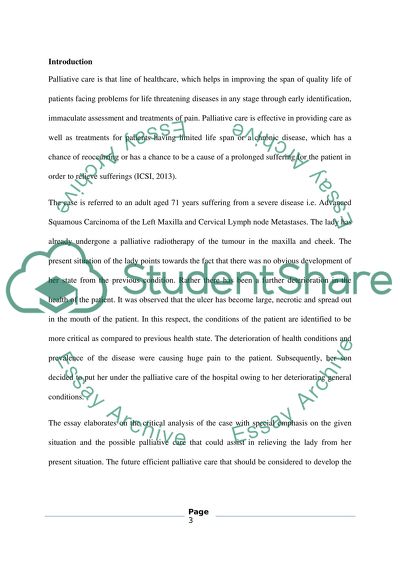Cite this document
(“Palliative Care Essay Example | Topics and Well Written Essays - 2000 words”, n.d.)
Palliative Care Essay Example | Topics and Well Written Essays - 2000 words. Retrieved from https://studentshare.org/nursing/1651991-palliative-care
Palliative Care Essay Example | Topics and Well Written Essays - 2000 words. Retrieved from https://studentshare.org/nursing/1651991-palliative-care
(Palliative Care Essay Example | Topics and Well Written Essays - 2000 Words)
Palliative Care Essay Example | Topics and Well Written Essays - 2000 Words. https://studentshare.org/nursing/1651991-palliative-care.
Palliative Care Essay Example | Topics and Well Written Essays - 2000 Words. https://studentshare.org/nursing/1651991-palliative-care.
“Palliative Care Essay Example | Topics and Well Written Essays - 2000 Words”, n.d. https://studentshare.org/nursing/1651991-palliative-care.


